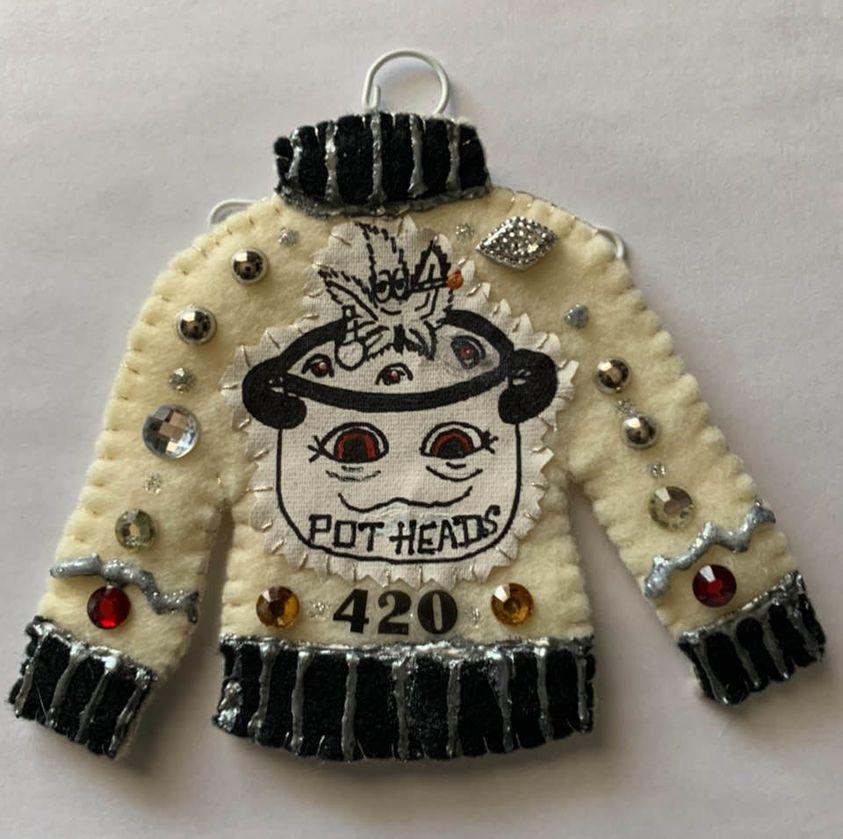REC articles are not the view or opinion of Alpha Extract Administrators
Cannabis study reveals how CBD offsets the psychiatric side-effects of THC
Mediame.guru
Summary: CBD blocks the ability of THC to overstimulate the ERK pathway in the hippocampus, preventing negative side effects associated with cannabis use.
Source: University of Western Ontario
Researchers at Western University have shown for the first time the molecular mechanisms at work that cause cannabidiol, or CBD, to block the psychiatric side-effects caused by tetrahydrocannabinol (THC), the main psychoactive chemical in cannabis.
It has been previously shown that strains of cannabis with high levels of THC and low levels of CBD can cause increased psychiatric effects, including paranoia, anxiety and addictive-behaviours, but why that was occurring was not fully understood.
Steven Laviolette, PhD, and his research team used rats to investigate the role of a molecule in the brain’s hippocampus called extracellular-signal regulated kinase (ERK) which triggers the neuropsychiatric effects of THC.
“For years we have known that strains of cannabis high in THC and low in CBD were more likely to cause psychiatric side-effects,” said Laviolette, a professor at Western’s Schulich School of Medicine & Dentistry. “Our findings identify for the first time the molecular mechanisms by which CBD may actually block these THC-related side-effects.”
The research, published in the Journal of Neuroscience demonstrates that rats that were given THC had higher levels of activated ERK, showed more anxiety behaviours and were more sensitive to fear-based learning. Rats that were given both CBD and THC acted like the control rats: they had normal levels of activated ERK, less anxiety behaviours, and were less sensitive to fear-based learning.
Based on these results, the research team proposes that CBD blocks the ability of THC to overstimulate the ERK pathway in the hippocampus and thus prevent its negative side-effects.

Based on these results, the research team proposes that CBD blocks the ability of THC to overstimulate the ERK pathway in the hippocampus and thus prevent its negative side-effects. The image is in the public domain.
“Our findings have important implications for prescribing cannabis and long-term cannabis use. For example, for individuals more prone to cannabis-related side-effects, it is critical to limit use to strains with high CBD and low THC content,” said Laviolette. “More importantly, this discovery opens up a new molecular frontier for developing more effective and safer THC formulations.”
PhD Candidate and Vanier Scholar Roger Hudson, lead author on the study, says another interesting finding was that CBD alone had no effect on the ERK pathway. “CBD by itself had no effect,” he said. “However, by co-administering CBD and THC, we completely reversed the direction of the change on a molecular level. CBD was also able to reverse the anxiety-like behaviour and addictive-like behaviour caused by the THC.”
Laviolette says they will be following up these studies by continuing to identify the specific features of this molecular mechanism. The research team will examine ways to formulate THC with fewer side effects and to improve the efficacy of CBD-derived therapies.
Source:
University of Western Ontario
Media Contacts:
Crystal Mackay – University of Western Ontario
Image Source:
The image is in the public domain.
Original Research: Closed access
“Cannabidiol Counteracts the Psychotropic Side-Effects of Δ-9-Tetrahydrocannabinol in the Ventral Hippocampus Through Bi-Directional Control of ERK1-2 Phosphorylation”. Roger Hudson, Justine Renard, Christopher Norris, Walter J. Rushlow and Steven R. Laviolette.
Journal of Neuroscience doi:10.1523/JNEUROSCI.0708-19.2019.
Abstract
Cannabidiol Counteracts the Psychotropic Side-Effects of Δ-9-Tetrahydrocannabinol in the Ventral Hippocampus Through Bi-Directional Control of ERK1-2 Phosphorylation
Evidence suggests that the phytocannabinoids Δ-9-tetrahydrocannabinol (THC) and cannabidiol (CBD) differentially regulate salience attribution and psychiatric risk. The ventral hippocampus (vHipp) relays emotional salience via control of dopamine (DA) neuronal activity states, which are dysregulated in psychosis and schizophrenia. Using in-vivo electrophysiology in male Sprague Dawley rats, we demonstrate that intra-vHipp THC strongly increases ventral tegmental area (VTA) DA neuronal frequency and bursting rates, decreases GABA frequency, and amplifies VTA beta, gamma and epsilon oscillatory magnitudes via modulation of local extracellular signal-regulated kinase phosphorylation (pERK1-2). Remarkably, whereas intra-vHipp THC also potentiates salience attribution in morphine place-preference and fear conditioning assays, CBD co-administration reverses these changes by down-regulating pERK1-2 signaling, as pharmacological re-activation of pERK1-2 blocked the inhibitory properties of CBD. These results identify vHipp pERK1-2 signaling as a critical neural nexus point mediating THC-induced affective disturbances and suggest a potential mechanism by which CBD may counteract the psychotomimetic and psychotropic side-effects of THC.
SIGNIFICANCE STATEMENT
Strains of marijuana with high levels of delta-9-tetrahydrocannabinol (THC) and low levels of cannabidiol (CBD) have been shown to underlie neuropsychiatric risks associated with high potency cannabis use. However, the mechanisms by which CBD mitigates the side effects of THC have not been identified. We demonstrate that THC induces cognitive and affective abnormalities resembling neuropsychiatric symptoms directly in the hippocampus, while dysregulating dopamine activity states and amplifying oscillatory frequencies in the ventral tegmental area via modulation of the extracellular signal-regulated kinase (ERK) signaling pathway. In contrast, CBD co-administration blocked THC-induced ERK phosphorylation, and prevented THC-induced behavioural and neural abnormalities. These findings identify a novel molecular mechanism that may account for how CBD functionally mitigates the neuropsychiatric side-effects of THC.
